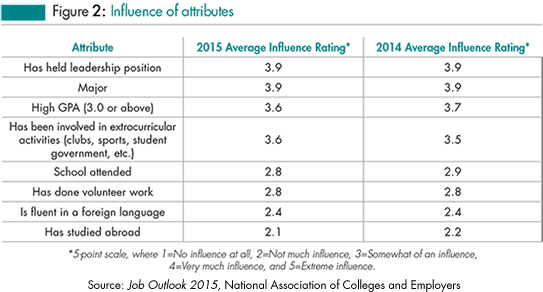It’s career fair season! And a career fair is a great place to gather information about potential employers and make contacts that can lead to your first job. Here’s some advice on how to make the most of your time at the upcoming events.
STEM Job Fair
HireaBear Career Fair
5 Things to Take to the Career Fair
- Information about the organizations attending. Gather information as you would for a job interview on organizations you’re interested in talking to. To maximize the brief time you have with each employer, you need to know how your skills and interests match their needs. And don’t just concentrate on the “big names.” There are often great opportunities with smaller companies or those with which you are not familiar.
- A 30-second “sales pitch.” Share basic information about yourself and your career interests like this: “Hello, I’m Carrie Jones. I’m a senior here at Wonderful University and I’m majoring in English. I’m very interested in a marketing career. As you can see on my resume, I just completed an internship in the Marketing Division of the ABC Company in Peoria. I’ve taken some courses in business marketing. I’m very interested in talking with you about marketing opportunities with your organization.”
- Copies of your resume (10 to 15, depending on the size of the event). Be sure it represents your knowledge, skills, and abilities effectively. It needs to look professional—easy to read format on plain white or cream colored paper—and be free of typos. If you are looking at several career options, you may want to have two or more targeted resumes with different career objectives!
- A smile, a strong handshake, and a positive attitude. First impressions are important. Approach an employer, smile, and offer your hand when you introduce yourself.
- Energy! Career fairs require you to be on your feet moving from table to table for an hour or so. Each time you meet someone, be at your best!
5 Things Not to Do at the Career Fair
- Don’t “wing it” with employers. Do your homework! Research the companies just as you would for an interview. Focus on why you want to work for the organization and what you can do for them.
- Don’t cruise the booths with a group of friends. Interact with the recruiters on your own. Make your own positive impression!
- Don’t carry your backpack, large purse, or other paraphernalia with you. Carry your resume in a professional-looking portfolio or a small briefcase. It will keep your resume neat and handy, and gives you a place to file business cards of recruiters that you meet. Stow your coat, backpack, or other gear in a coatroom.
- Don’t come dressed casually. A career fair is a professional activity—perhaps your first contact with a future employer.
- Don’t come during the last half hour of the event. Many employers come a long distance to attend the fair and may need to leave early. If you come late, you may miss the organizations you wanted to contact!
5 Things to Take Home From the Career Fair
- Business cards from the recruiters you have met. Use the cards to write follow-up notes to those organizations in which you are most interested.
- Notes about contacts you made. Write down important details about particular organizations, including names of people who may not have had business cards. Take a few minutes after you leave each table to jot down these notes!
- Information about organizations you have contacted. Most recruiters will have information for you to pick up, including company brochures, computer diskettes or CD’s, position descriptions, and other data. You won’t have time to deal with these at the fair!
- A better sense of your career options. If you have used the event correctly, you will have made contact with several organizations that hire people with your skills and interests. In thinking about their needs and your background, evaluate whether each company might be a match for you.
- Self-confidence in interacting with employer representatives. A career fair gives you the opportunity to practice your interview skills in a less formidable environment than a formal interview. Use this experience to practice talking about what you have done, what you know, and what your interests are.
Courtesy of the National Association of Colleges and Employers.







